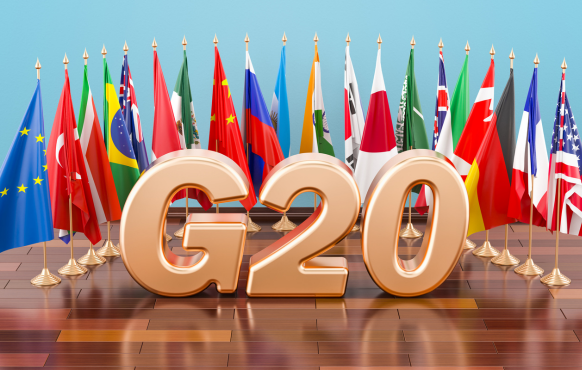
By: Maria Lúcia Soares Bueno (Golden Ladies)
The G20 is a group that brings together the 19 largest economies in the world: Argentina, Australia, Brazil, Canada, China, France, Germany, India, Indonesia, Italy, Japan, Mexico, Russia, Saudi Arabia, South Africa, South Korea, Turkey, United Kingdom, USA, the European Union and, as of this year, the African Union.
This group emerged in 1999, after a series of global economic crises in the 1990’s. The idea was to gather leaders to discuss global economic, political and health challengers. Together, the nations represent around 85% of the entire world economy, more than 75% of world trade and around 2/3 of the world population.
The G20 has annual rotating presidencies. Brazil, the current president of the group, will be in charge till November 30, 2024, and that is why the meeting was here. The group’s objective is to submit 3 topics for discussion: social inclusion and combating hunger; energy transition and sustainable development; and reform of global governance institutions and multilateral organizations such as the UN.
G20 focuses on two work fronts: the Sherpa track and the Finance track. The first aims to monitor negotiations between countries, coordinate most of the work and discuss the main issues on the group’s agenda. They are representatives of the heads of the States. The name “Sherpas” is a reference to an ethnic group that lives high in the Himalayas, in Nepal: they help guide climbers who want to reach the top of Mount Everest. After months of countless negotiations and meetings, G20’s Sherpas gather before the official meeting to draft the statements of G20 leaders, in Rio.
The Finance track deals with macroeconomic issues and is led by members of the economy ministries and leaders of the central banks of the member countries.
The summit with the heads of state took place on the 18th and 19th of November, at the Museum of Modern Art (MAM), in Aterro do Flamengo. The G20 Social summit, which brought together citizens from the group’s countries, took place between 14th and 16th of November in Porto Maravilha.
The fact that Brazil is presiding over the meeting this year, should be used to promote and ensure Brazilian protagonism in major international debates.
Compartilhe esta matéria:
Retornar ao



